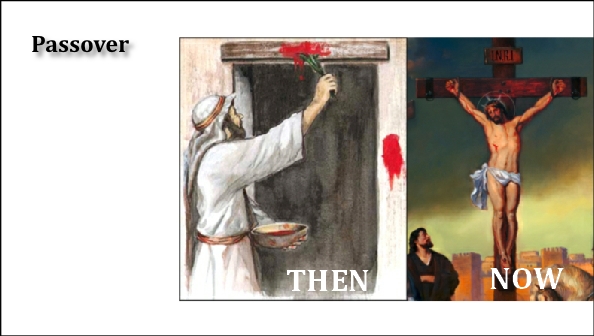By Tyson Thorne

Every nation and people group has its holidays, usually celebrating a significant event or person in the nation’s history. Among the many holidays celebrated by Jews are seven feasts – celebrations that are more important and meaningful than any other holiday in any nation and of any time. What makes these seven feasts so remarkable? They are not Jewish feasts, they are God’s.
At the time the events of Passover were being played out in Egypt, God instructed Moses how the Passover feast was to be celebrated in the years, centuries and millennia to come. God took ownership of this feast in a unique way, declaring this “is the Lord’s Passover” (Exodus 12.11). There are seven such feasts “of the Lord” that God institutes and celebrates with his people, the complete list is found in Leviticus 23. As the feasts are celebrated throughout this year Think-Biblically will outline their significance to both the Lord’s chosen people and his adopted sons and daughters.
Like all the feasts of God, Passover has both a literal and symbolic meaning, a historic and prophetic event behind it. As we dramatically presented yesterday, the very literal historic event the feast is based on is the final plague of Egypt which secured the freedom of the Hebrew slaves. God created Passover to be a single day celebrated by a literal meal, the components of which are symbols of truth. Rabbi Dow Marmur explains, “the shankbone which is a reminder of the Paschal lamb offering; the burnt egg representing the second, festive, sacrifice; the bitter herbs to remind us of the bitterness endured by the Israelites in Egypt; the salt water that tastes like their tears; the charoset (a mixture of apples, almonds and wine) that looks like the mortar out of which the slaves were to build the pyramids; and, above all, the unleavened bread and the wine…” (For a thorough explanation of the components of this meal and all seven feasts, I highly recommend The Feasts of the Lord, by Kevin Howard and Marvin Rosenthal.) Both Jews and Christians recognized the feast is also a prophecy regarding the Messiah who would come not to free people from slavery but from sin. Christian’s see this as fulfilled prophecy, of course.
If you have never participated in a Seder dinner, Think-Biblically highly recommends you do so, for since this Feast was instituted 3500 years ago the command to celebrate it has never been repealed. In fact, it was during the celebration of Passover with a Seder dinner that Jesus instituted communion. The cup Jesus raised and said he would not drink of again until we can all take of it together is the third cup of wine – called the Cup of Redemption.
Due to its significance one wonders if Christ-followers should celebrate this feast today. Early Jewish Christians did with the understanding that Jesus is the final Passover lamb, sacrificed once for all, on the day of Passover. For this reason they adjusted the Passover Feast by eliminating the lamb and bringing to the forefront the element of the broken matzah – the afikomen (broken matzah bread) -- an element that wasn’t understood for thousands of years and which clearly points to Jesus, the third member of the Trinity who was broken for our transgressions. When the temple was destroyed in 70 AD and there could be no sacrifice, the Jewish community picked up the Christian Jews tradition and celebrated the feast in this same way, although without recognizing Jesus as the Messiah.
There is much significance to the afikomen since it is the broken bread Christ revealed represented his body, broken for us. Indeed, this unleavened bread and the third cup of wine are the elements we celebrate as Communion, or the Lord’s Table. Since we celebrate Communion most churches feel there is no need for the Passover feast any longer. Because most Christians fail to recognize the heritage and full meaning of the Communion elements I think it may be useful to celebrate Passover, though not mandatory. As Paul taught the people of Colossi, “do not let anyone judge you with respect to food or drink, or in the matter of a feast, new moon or Sabbath days – these are only a shadow of the things to come, but the body that casts the shadow is Christ!” (Colossians 2.16-.17).
Tomorrow we’ll look at the second of the seven feasts – The Feast of Unleavened Bread.
|
|
|
